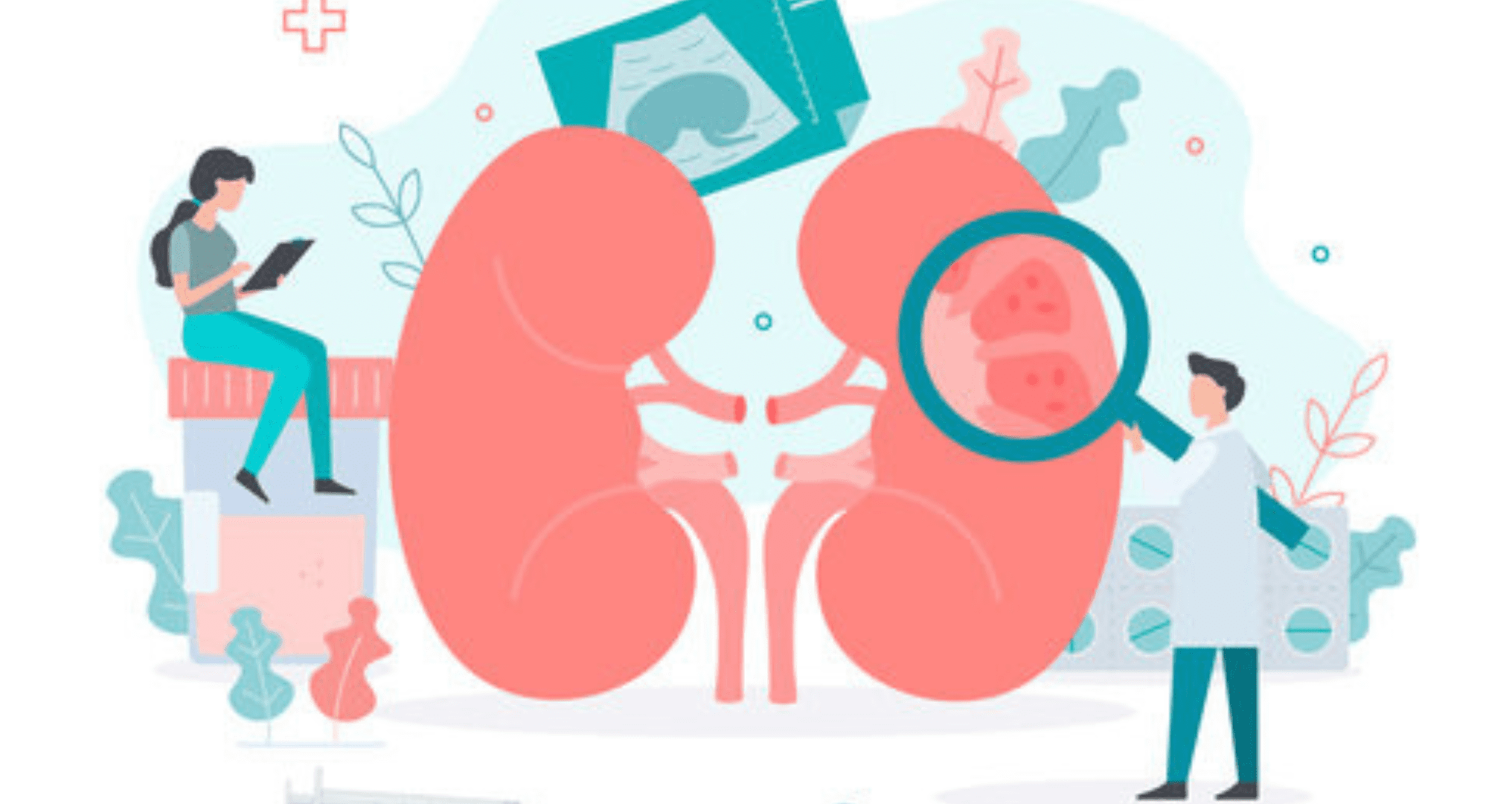
How Is Dehydration Linked to Our Kidneys’ Health?
Did you know that dehydration and kidney health are connected?
When we don’t get enough fluids, it messes with how our kidneys work and our overall well-being.
When the human body experiences dehydration, it means it lacks sufficient fluid to carry out its normal functions adequately. This deficit in fluid can adversely affect the kidneys in several ways such as reduced blood flow to the kidneys, concentrated urine, increase the risk of kidney stones, cause impaired electrolyte imbalance, and acute kidney injury. These are all things that can be solved when you have a steady access to clean, freshing drinking water – And Artesian Bottleless Water can help!
What is Dehydration?
Dehydration is a state in which there is not enough water in the body to support normal bodily processes. This process often occurs when we lose more water or fluids than we take in. It can also be caused by a number of medical conditions, such as excessive perspiration, vomiting, diarrhea, or a combination of these.
What Are the Signs and Symptoms of Dehydration?
Common symptoms of dehydration looks different for everyone, and depends a lot on a person’s age. These symptoms might include:
On Infants or young children
● Dry skin, mouth, and tongue
● No tears when crying
● No wet diapers for three hours
● Sunken eyes, cheeks
● Sunken soft spot on top of skull
● Listlessness or irritability
On Adults
● Extreme thirst
● Less frequent urination
● Darker urine
● Fatigue
● Dizziness
● Confusion
● Loss of Consciousness
When to See a Healthcare Provider?
Persistent diarrhea for 24+ hours with irritability, disorientation, sleepiness, or reduced activity requires urgent medical attention. These symptoms may indicate a serious condition; prompt evaluation by a healthcare professional is crucial for proper treatment.
Drinking water or other liquids containing electrolytes can usually counteract the symptoms of dehydration in moderate situations. Dehydration can, however, become a serious medical emergency requiring prompt medical care, particularly if it results in consequences like heatstroke or acute kidney failure.
What Are the Causes of Dehydration?
Diarrhea and Vomiting
A quick loss of electrolytes and water can occur in the event of a severe case of acute diarrhea, or diarrhea that arises suddenly and forcefully. If you have both diarrhea and vomiting, you lose a lot more fluids and minerals.
Fever
In general, the risk of dehydration increases with your fever. The condition worsens if you have diarrhea, vomiting, and a fever.
Excessive Sweating
Sweating causes water loss. If you engage in excessive physical activity without replenishing lost fluids, you risk becoming dehydrated. Sweating and fluid loss are both accelerated in hot, humid weather and vigorous activities.
Increased Urination
Diabetes that has not been properly diagnosed or managed may be at fault. Diuretics and some blood pressure medications, for example, can produce dehydration as a side effect, primarily because they increase urination.
What Are the Factors That Put People at Risk of Dehydration?
Anyone can become dehydrated, although some people are more susceptible than others:
Infants and children
Children and newborns are more likely to experience severe diarrhea and vomiting, which can lead to dehydration. They lose more fluid when ill or injured because of their greater surface area to volume ratio. Young children frequently struggle to express their thirst or obtain liquids on their own.
Older Adults
Your body’s ability to hold onto fluids decreases with age, along with your capacity for water conservation and the intensity of your thirst. Chronic conditions like diabetes and dementia as well as the usage of specific drugs exacerbate these issues. Mobility issues in older persons may also make it difficult for them to get water on their own.
People with Chronic Illnesses and Certain Health Conditions
People with diabetes face a significant risk of dehydration. This risk is heightened by conditions like Chronic Kidney Disease and medications that increase urination frequency. Additionally, even common illnesses like colds or sore throats can make one susceptible to dehydration, as reduced appetite and fluid intake are common when feeling unwell.
How Can Dehydration Directly Affect Our Kidneys’ Health?
Dehydration can directly affect our kidneys in several ways, leading to potential complications and impaired kidney function. Here are some ways in which dehydration impacts the kidneys:
1. Reduced Blood Flow: Dehydration leads to a decrease in blood volume, which means there is less blood flowing to the kidneys. Reduced blood flow to the kidneys can hinder their ability to effectively filter waste products, toxins, and excess substances from the bloodstream.
2. Concentrated Urine: When the body is dehydrated, the kidneys try to conserve water by producing more concentrated urine. As a result, the urine becomes more concentrated with waste products and minerals. This concentrated urine can irritate the bladder and increase the risk of developing urinary tract infections. Urine tests may help determine if the patient’s kidneys are functioning well.
3. Kidney Stone Formation: Dehydration is a significant risk factor for kidney stone formation. Concentrated urine can lead to the crystallization of minerals and salts, contributing to the development of kidney stones. These stones can cause intense pain and discomfort and may hinder kidney function if they block the urinary tract. If left untreated, it can also result in Chronic Kidney Disease.
4. Electrolyte Imbalance: Dehydration disrupts the balance of essential electrolytes, such as sodium, potassium, and chloride, in the body. The kidneys play a crucial role in maintaining the proper balance of these electrolytes. When dehydration occurs, the kidneys may struggle to regulate electrolyte levels, leading to an imbalance that can affect various bodily functions.

What Can We Do to Prevent Dehydration?
Drinking plenty of water and eating meals high in water, such as fruits and vegetables, helps to avoid being dehydrated. For the majority of healthy people, following the daily rule of following your thirst is sufficient.
- Drink Plenty of Water: The most effective way to stay hydrated is to drink an adequate amount of water throughout the day. The general guideline is to aim for about 8-10 glasses of water (64-80 ounces) of water daily, but individual needs may vary based on factors like age, activity level, and climate. Sports Drinks also help in rehydrating the body, but still, plain water is the best option.
- Listen to Your Body: Pay attention to your body’s thirst signals. If you feel thirsty, it’s an indication that your body needs more fluids. Don’t ignore thirst. Drink water as soon as you feel the need.
- Keep Water Handy: Carry a reusable water bottle with you wherever you go. Having extra water readily available makes it easier to stay hydrated and reminds you to drink regularly.
- Consume Hydrating Foods: Include water-rich fruits and vegetables in your diet. Foods like watermelon, cucumbers, oranges, and lettuce contain high water content and contribute to your overall fluid intake and maintain a balanced diet.
However, we have to take note that excess water intake could also be detrimental to a person’s health.
Safeguard Your Kidneys: Stay Hydrated for Optimal Health with Artesian Bottleless Water!
Staying hydrated and maintaining normal and healthy kidneys is now possible with Artesian Bottleless Water. Artesian Bottleless Water coolers provide water that is balanced at the perfect pH. A higher pH means more oxygen and more of the key minerals that your body needs to run properly. Our alkaline water can help keep you healthy and hydrated and your kidneys functioning properly.
Our water goes through a multi-step filtering process, including reverse osmosis, to bring you the purest water on the market. When you drink from our coolers you can rest assured that you’re drinking water that is free of harmful metals, bacteria and chemicals and is even better for your kidney health than anything you’ll find in the stores.
Delicious Water, Always on Tap. Want to try a bottleless water cooler free for a week? Connect us today!
Credit: Photo by Pixabay



